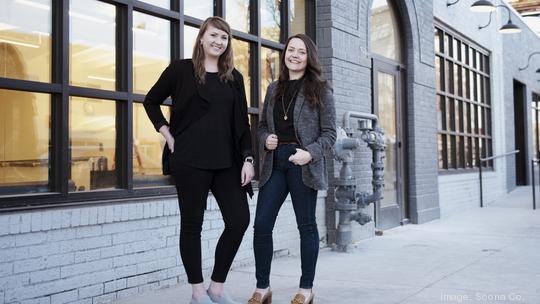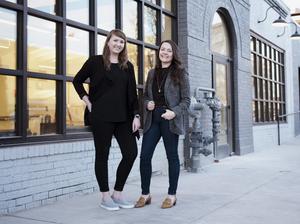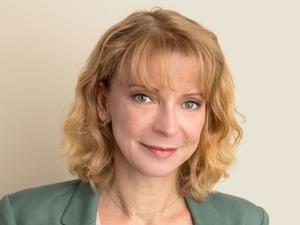
Soona is surging.
The Minneapolis- and Denver-based same-day photo startup that makes content for e-commerce companies announced a $35 million round of venture capital last week led by Boston-based Bain Capital Ventures. Other participants in the round included Minneapolis-based Matchstick Ventures, New York City-based Union Square Ventures, Chicago-based Starting Line Ventures, New York City-based 2048 Ventures and Denver-based Range Ventures.
Soona's primary business involves shooting photos of products sold by e-commerce companies. During the pandemic, the company adopted a virtual model that allows clients to ship their products to one of Soona's studios in Minneapolis; Denver; or Austin, Texas, and then direct the shoot from their laptops.
The latest round will go towards tripling the size of its product and engineering team, said CEO Liz Giorgi. Within the next six months, Soona will also add studios in Seattle and Los Angeles.
Giorgi spoke with Minne Inno about Soona's fundraising and what comes next. The interview has been edited for length and clarity.
Why raise money now?
I'm incredibly impatient. Once we sort of honed in on what our strategy was and that it could be duplicated and replicated, it became pertinent to me that we had the kind of financing that was necessary to really go after that faster. We want to be able to be ahead of the curve, not behind it. And so from where we sat, we just thought the opportunity was now.
What's been key to scaling so quickly?
Customer passion has been a massive unlock. We have some of the highest rates of repeat business for any transactional business and B2B that Bain Capital had ever seen. The other factor that I think has been really huge is just the scalability of the platform. I think a lot of people had questions about whether some of the more high-margin pieces of the business can scale at an exponential rate. And the truth is they did. And it really was an unlock for us as a team to be able to see those outcomes come to life.
Is reaching unicorn status something you actively strive for? Or is it a byproduct of the company's rapid growth?
We have a funny phrase, that Soona is a soona-corn or soon-to-be-a-unicorn. I already feel like we have to play the game. We have to believe that we are creating something that is so important and so meaningful. You have to be willing to wake up every single day from that position of power, in that position of confidence. But I think the market decides, unfortunately, whether or not you are actually a unicorn. The No. 1 audience I hear from when we announce a fundraise is from other female founders who are saying, "Thank you for doing this. Thank you for pushing. Thank you for continuing to grind. Thank you for continuing to make your work public." Because it gives all of us hope that it won't just be us, there will be many of us. And there are many more to come.
You previously founded and sold another company. What about that experience do you take into Soona?
I tend to think that my first business is like my MBA. I learned everything I needed to learn to be effective here in my role at Soona. There's not a day that goes by that I'm not leveraging a leadership learning or a hiring learning or a finance learning that didn't come from my first business. Nothing will make you 100% radically open to the possibilities like succeeding and failing on your own, and I feel so lucky that I was able to succeed.
What frustrates you the most about the industry, particularly as a female founder?
I think the industry is a really funny bubble to be a part of. On the one hand, it's a place where we encourage so much hope and optimism. We really try to herald this idea that anyone can achieve anything and entrepreneurship is a pathway towards radical outcomes that can happen for anyone, and I think that's generally true. But I also think that when we talk about those things, and we don't acknowledge that there are so many places where bias and gatekeepers stand in the way of that.
My biggest frustration is that there are probably so many unicorn businesses, there are probably many, many brilliant ideas that deserve the light of day that will never be seen. That's based on an opinion or a perception of what founders look like. Hayley (Anderson) and I did not go to an Ivy League school, we did not study computer science, we weren't hackers in our bedroom. I didn't even start this company when I was in my 20s; I started this company when I was in my mid-30s. I'd really like us to start embracing the idea that the startup community is a place for moms, it's a place for single parents, it's a place for retirees. So we can really actually begin to bring to market ideas that help the most amount of people.






